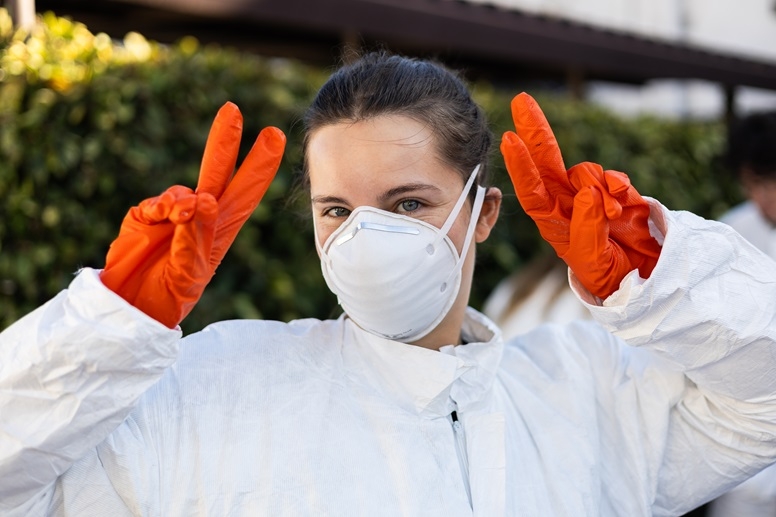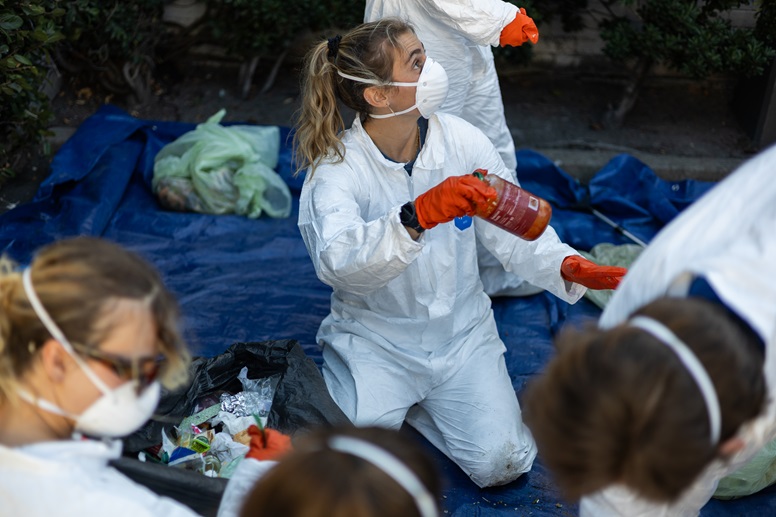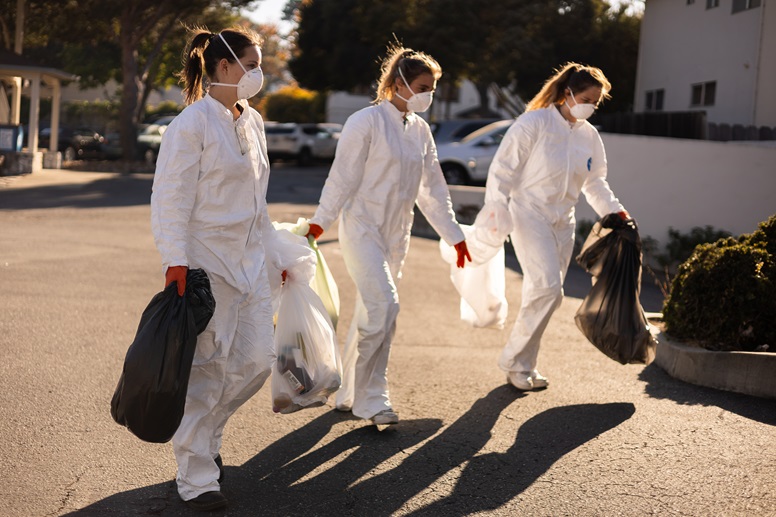In the News: Evaluating the Greenest Cities in America
| by Fernando DePaolis
Professor Fernando DePaolis recently shared insight on nature-based solutions fueling greener cities and the urgency of the urban heat threat.

Middlebury Institute students grapple with messy real-world problems every day, but their work rarely gets messier than the annual “Trash Bash” audit of the campus’s recycling program.
On a recent Friday afternoon, 15 students from the Institute’s Sustainability Council donned gloves, masks, and hazmat suits, and shook the contents of all of the trash, recycling, and compost bins on campus out on a large tarp in front of the library. With their smelly research materials spread out at their feet, the students conducted an audit designed to track progress toward the campus’s sustainability goals.
Reporters from the Bay Area CBS station interviewed students from the Sustainability Council.
“We were trying to sort through all the garbage on campus to try and figure out whether people are recycling correctly, whether they were putting things in the trash correctly, and whether they’re putting things in the compost correctly,” says Sophie Doddimeade, who will complete her Master of Arts in Environmental Policy and Management in 2026.
Students employ the analytical skills they’ve been developing in the classroom to crunch the data.
“We’re hoping to see even more waste diverted from the landfill this year,” says Sustainability Council chair Sydnie Miller, who will complete her Master of Arts in Environmental Policy and Management next spring. “Reducing waste and diverting recyclables and compost from landfills are critical for taking on the climate crisis.”

The Institute’s goal is to divert 65 percent of waste from landfills by this year towards recycling or composting and 80% by 2028.
In the last audit in 2022, the Sustainability Council collected 14.75 pounds of waste and found that 2 pounds could have been recycled and 3.5 pounds could have been composted. This inspired the Institute to launch an initiative to introduce compost bins on campus, which it was able to do after the City of Monterey started offering organic waste recycling in 2022, in compliance with a new state law.
The latest audit found that only 52.5% of the total waste was put into recycling and compost, falling short of the 2024 goal. However, if everything went in the right bin, the Institute would have exceeded the target at 67.4%.
Miller and the council are also working to raise awareness and encourage sustainable habits across campus.
“Education is so important,” says Miller. “A lot of recyclables that could be diverted were simply thrown in the wrong bin.”

“You can tell a lot about a community by digging through their trash,” adds environmental policy student Jack Anderson. “These community-focused waste audits give students the opportunity to more critically engage with the outputs of our consumption habits. We hope that more students get involved in this process to inspire better waste management practices on the individual level.”
The “Trash Bash” was covered by CBS News Bay Area, in both broadcast and article form.
Master of Arts in Environmental Policy and Management
Sustainability Initiatives
| by Fernando DePaolis
Professor Fernando DePaolis recently shared insight on nature-based solutions fueling greener cities and the urgency of the urban heat threat.
| by Sierra Abukins
Under the guidance of their professor, a team of Middlebury undergraduate and graduate students wrote an article, published in Sea History, that highlighted the little-known history of the Japanese American abalone fishery in Monterey Bay.
| by Caitlin Fillmore
Environmental policy and management student Allie Chapman will share her experience drafting legislation during a free public event at the Middlebury Institute on October 21.